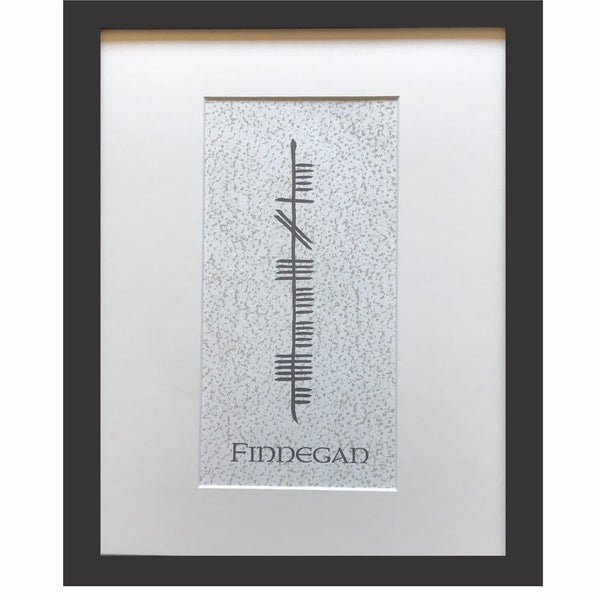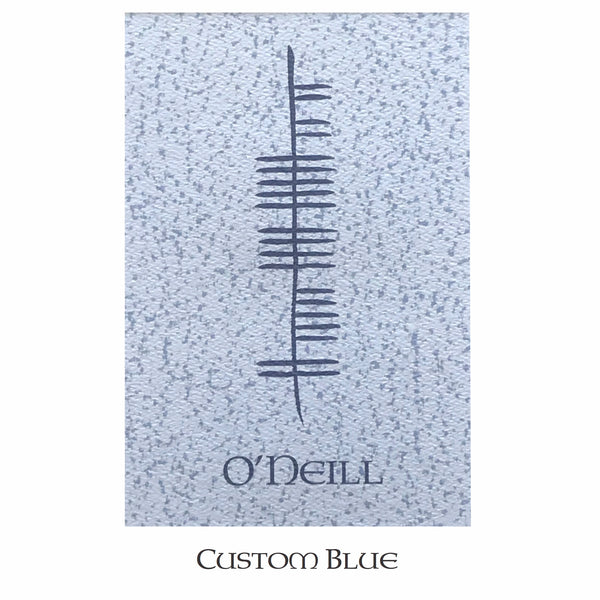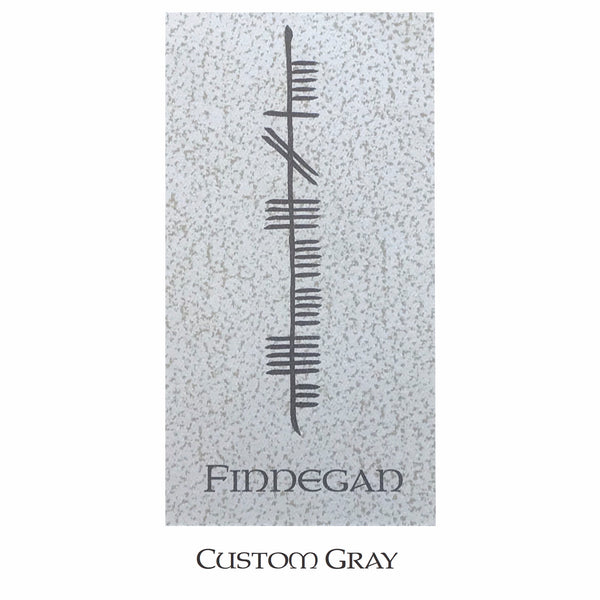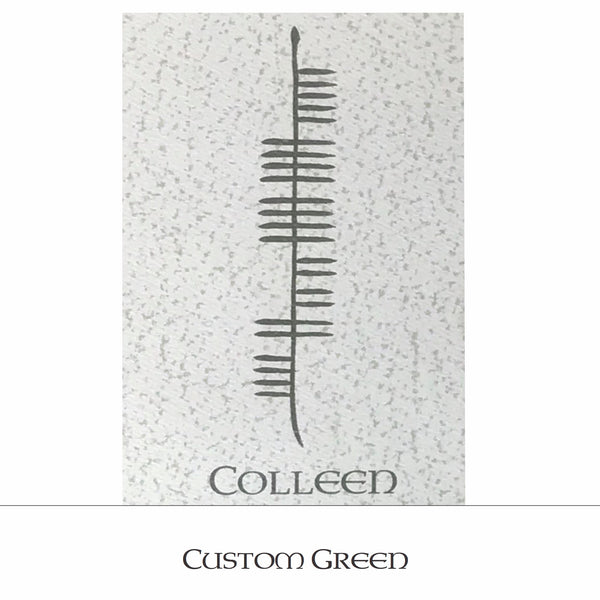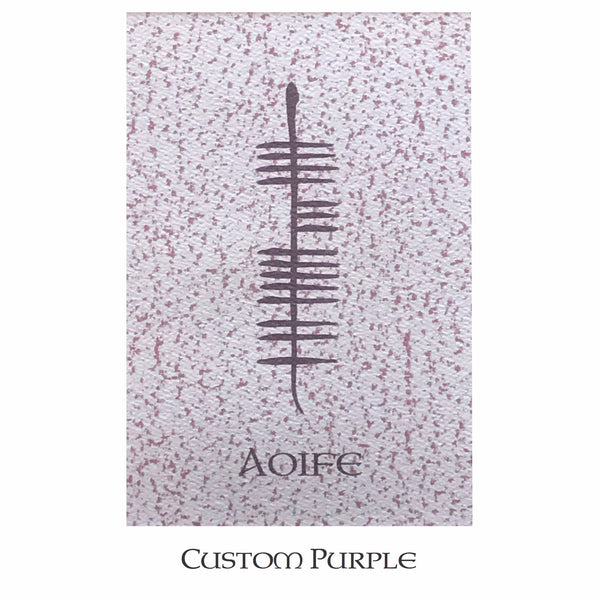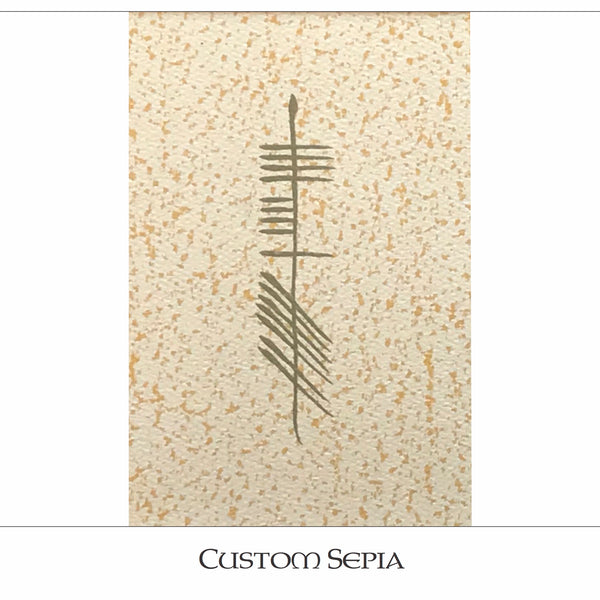Custom Personalized Ogham 11x14 Print
Regular price
$75.00
HOLIDAY 2025 ORDERING DEADLINE FOR CHRISTMAS DELIVERY (DOMESTIC US)
Sunday, December 7, 2025
Any custom print orders received after December 7, 2025 will arrive after Christmas and/or early January 2026
Your choice of name or word presented in Ogham.
- Presented in white mat and black wood frame in open front corrugated box perfect for gift wrapping
- Shorter names/words may be accommodated in an 8x10 presentation for $65 by clicking here
- Includes a descriptive label on the back of the mat and frame along with a 4x6 card explaining the history of the Ogham alphabet
Due to the nature of the Ogham alphabet, words and names may appear longer once translated. Ogham Art will contact you with any questions or concerns about your custom order. We will work with you to ensure your finished piece is both balanced and aesthetically pleasing.
Ships within 3 weeks. USPS shipping times are in addition to this handling period.







